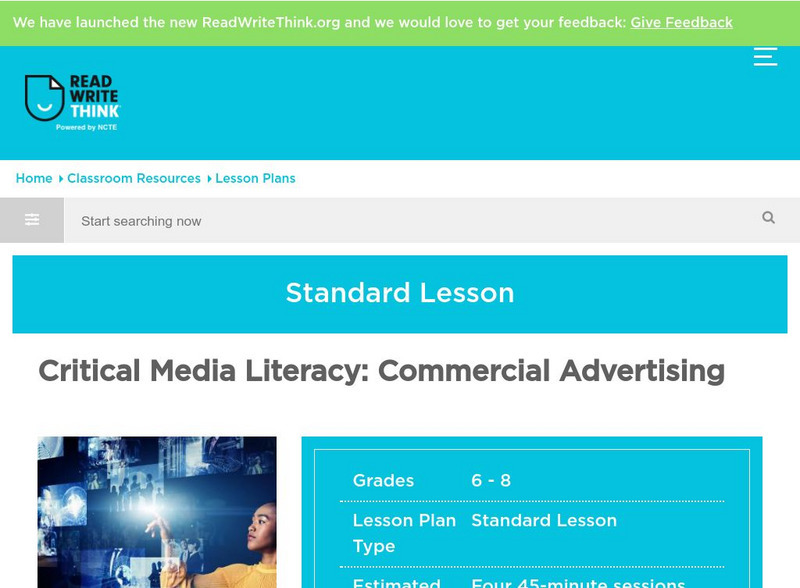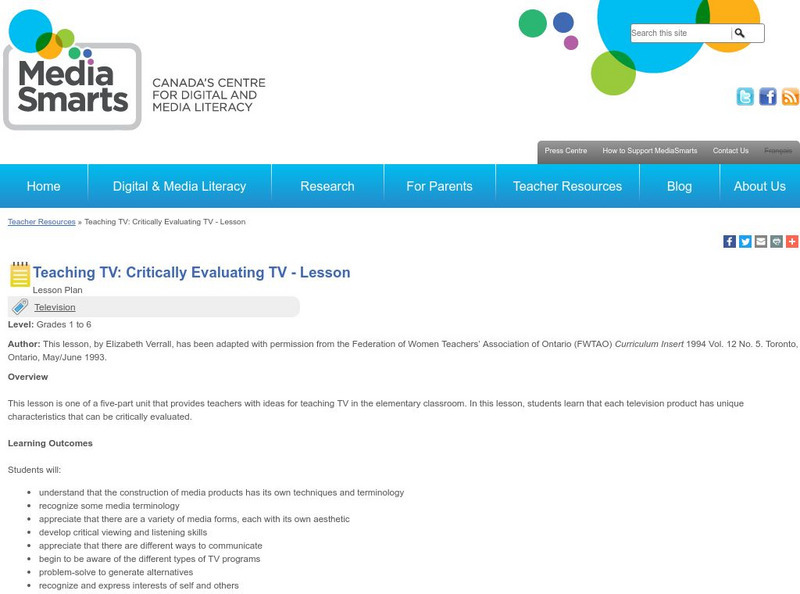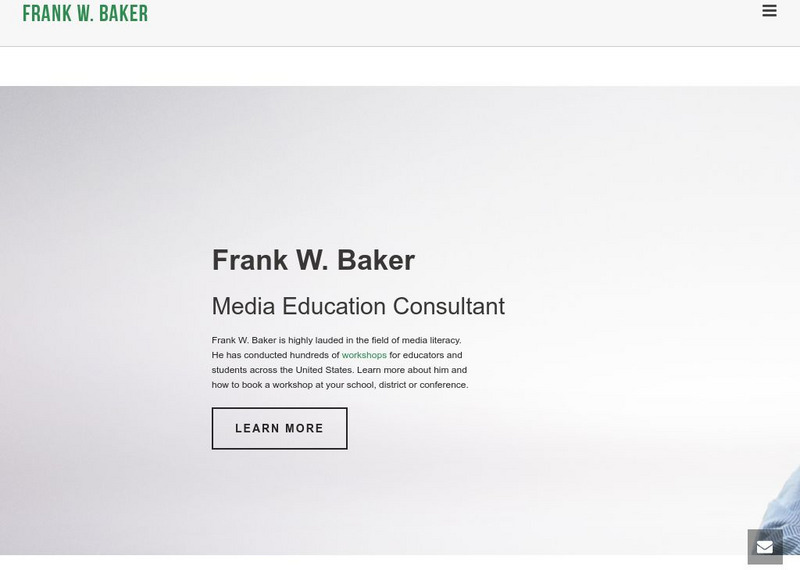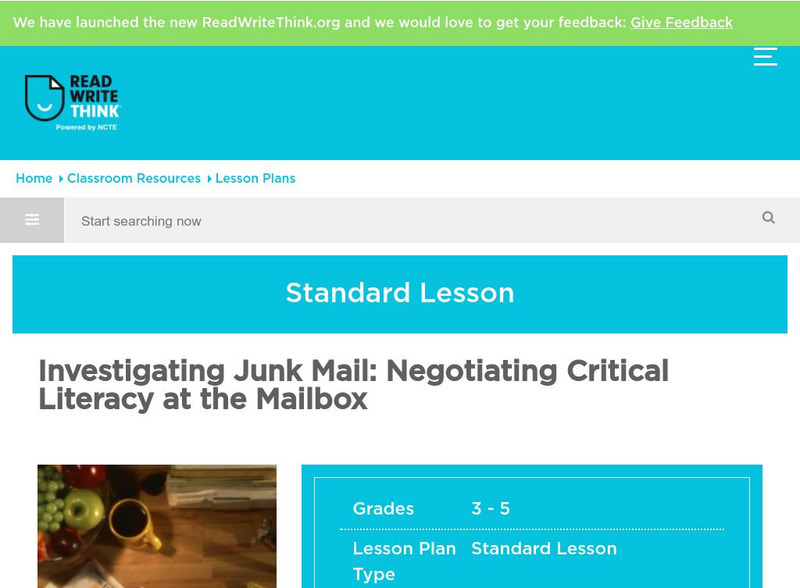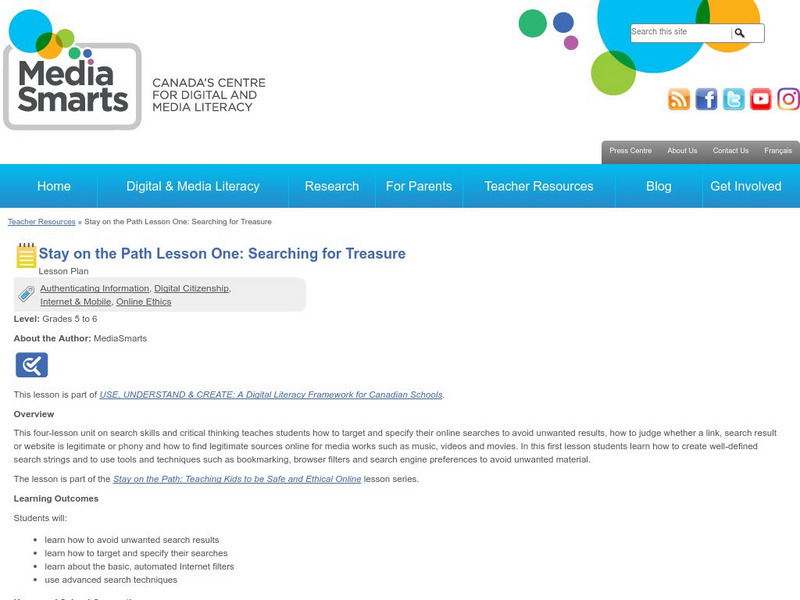Curated OER
Before You Were Mine
Students discuss animal adoption and pet care. In this pet lesson, students listen to the story Before You Were Mine by Maribeth Boelts. They discuss animals body language, feelings, and how to best car for them.
Curated OER
Voyages: Wild Weather
Pupils examine the causes of extreme weather. In this weather lesson, students read Voyages: Wild Weather by Caroline Harris. Pupils conduct further research by accessing selected websites.
Curated OER
Inventing and Presenting Unit 1: Analyzing Nonfiction and Inventing Solutions
Students read about and identify patterns in the invention process. Students discuss and write about information learned from research. Students compile a list of problems, choose one, write a problem statement, and compile a list of at...
Curated OER
Choosing the Best Hits
Students practice quickly scanning the results of an internet search to determine which might provide the best information. They choose key words or phrases to type into the search engine and read the descriptions of each hit.
ReadWriteThink
Read Write Think: Critical Media Literacy: Commercial Advertising
In this lesson, students will examine mass media critically and become aware of how much advertising is around them. They will realize the impact media has on social equality, what people buy, and on culture.
Media Smarts
Media Smarts: Looking at Food Advertising Lesson
MediaSmarts provides digital and media literacy lessons for learners. In this lesson, young students will learn about the importance of spokescharacters for companies. Then learners will create own jingles and spokescharacters for foods...
Other
Media Education Lab: Assignment: Media Literacy: Secondary School
A well-done set of units that helps teachers teach the importance of media literacy to their students. Click on Secondary School Introduction to see a video of teachers in the classroom instructing students in ways of using and...
Common Sense Media
Common Sense Media: Education: Social Media and Digital Footprints: Our Responsibilities
Social media can be a place to connect, learn, and, most of all, share. But how much do kids know about what they're sharing - and not just about themselves but each other? Help students think critically about their digital footprints on...
Media Smarts
Media Smarts:teaching Tv: Critically Evaluating Tv Lesson
MediaSmarts provides digital and media literacy lessons for students. In this lesson, students will learn to watch and listen to a television with a critical lense
PBS
Pbs Learning Media: Why Is Fake News So Effective?
This lesson frames the controversial issues of fake news and trust in the media with the historical context of yellow journalism and sensationalist reporting. Students learn strategies for improving their media literacy and will be able...
New York Times
New York Times: Evaluating Sources in a 'Post Truth' World: Fake News
[Free Registration/Login Required] Need help determining fake news from real news? This seems to be a problem today. Find practical activities and questions to help navigate a media landscape in which it is increasingly difficult to tell...
Media Smarts
Media Smarts: Can You Spot the Ad?
MediaSmarts provides digital and media literacy lessons for students. In this lesson, young students will learn how to differentiate "branded" and brands" in content. Students will also learn learn strategies and goals of advertisers.
Media Smarts
Media Smarts: Teaching Tv: Enjoying Television Lesson
MediaSmarts provides digital and media literacy lessons for students. In this instructional activity, young students will become reflect about television programs they enjoy and analyze why they enjoy them.
Other
Media Literacy Clearinghouse: Critically Viewing Photographs: Civil War
Was it possible to manipulate photographs during the Civil War? Teach your young scholars about critical viewing through this innovative instructional activity and engage them in discussion, analysis and research to explain their findings.
Media Smarts
Media Awareness Network: Lesson Plan: How to Analyze the News [Pdf]
Lesson plan focusing on the importance of understanding how the news is a product with a specific scope, structure, slant and style at the forefront of its production.
Common Sense Media
Common Sense Media: Education: Lesson: Who Is in Your Online Community?
[Free Registration/Login Required] By learning the Rings of Responsibility, 2nd graders explore how the Internet connects us to people in our community and throughout the world. Help students to think critically about the different ways...
Common Sense Media
Common Sense Media: Education: Lesson: Digital Trails
[Free Registration/Login Required] Does what you do online always stay online? Students learn that the information they share online leaves a digital footprint or "trail." Depending on how they manage it, this trail can be big or small,...
PBS
Pbs Learning Media: Walt Whitman: Journalist and Poet
Through an examination of primary sources and watching a short video, students will learn about Whitman's love for and criticism of the United States.
Common Sense Media
Common Sense Media: Education: The Reality of Digital Drama (6 8)
Students discuss their impressions of peer drama, both online and as depicted on reality TV. Students compare and contrast two videos - one featuring a candid discussion between middle school students about online drama and the other...
ReadWriteThink
Read Write Think: Junk Mail: Negotiating Critical Literacy at the Mailbox
Contains plans for three lessons that teach students to examine junk mail critically. In addition to objectives and standards, this instructional plan contains links to sites used in the lessons as well as assessment and reflection...
Media Smarts
Media Smarts: Stay on the Path Lesson One: Searching for Treasure
This four-lesson unit on search skills and critical thinking teaches students how to target and specify their online searches to avoid unwanted results, how to judge whether a link, search result, or website is legitimate or phony and...
McREL International
Mid Continent Research for Education and Learning: Deconstructing Media Messages
This brief lesson plan focuses on the roles that many different people play in the creation of media messages and advertising.
PBS
Pbs Learning Media: Whose Streets?: Lesson Plan Clips
This lesson provides a framework for critical analysis of current and historic race relations in America through the lens of the 2014 shooting of Michael Brown, Jr., a young unarmed black man, by white police officer Darren Wilson in...
Rock and Roll Hall of Fame
Rock & Roll Hall of Fame: Sti Lesson 28 the Electric Hearth
As educators, the goal of developing students into discerning, critical viewers may enable them to negotiate with more confidence through the treacherous waters of today's multimedia. Studying the various viewpoints as expressed in...






